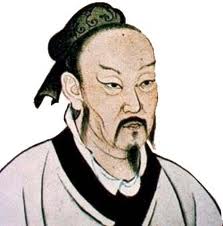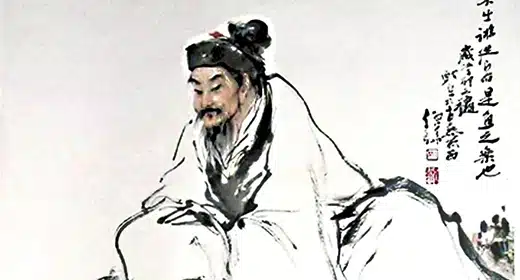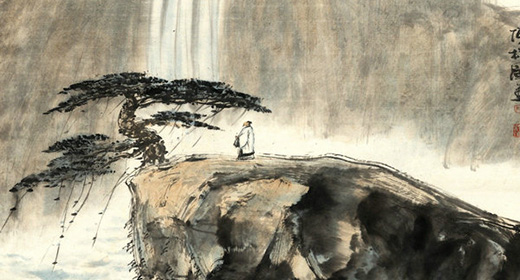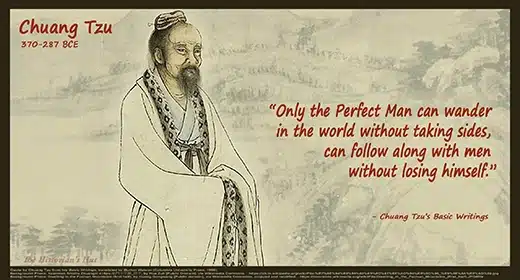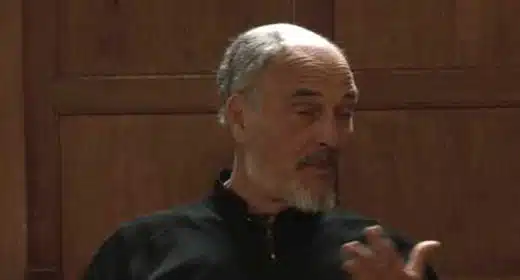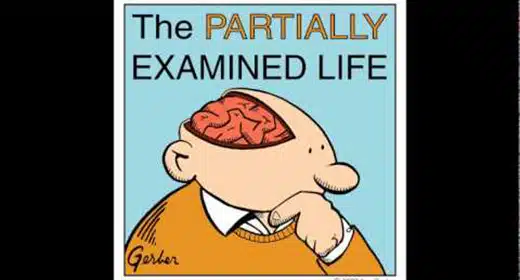Chuang Tzu (399 – 295 B.C.) was a Chinese Taoist philosopher, of the fourth century BC, and the most brilliant of the early Taoists. He was the greatest prose writer of his time, contemporary with Plato and Aristotle. His writing was at once transcendental while at the same time being deeply immersed within everyday life. His style of writing with its parables and conversations were both accessible while at the same time pointing to deeper issues. Chuang-tzu became an indefatigable critic of Confucius and of his disciples and his critical work combined satire and sophism.
Legend has it that Chuang Tzu declined the honor of being prime minister to King Wei of Ch’u (339-329), saying that he much preferred to be a live tortoise wagging its tail in the mud than a dead one venerated in a golden casket in a king’s ancestral shrine.
Chuang Tzu’s greatness lay in his bringing early Taoism to its full completion. While he was true to the Taoist doctrine of wu-wei (refraining from action contrary to Nature), he extended the Taoist system and carried out metaphysical speculations never heard of by the early Taoists. The philosophy of Chuang Tzu, as characterized by its emphasis on the unity and spontaneity of the Tao, its assertion of personal freedom, and its doctrine of relativity of things, is essentially a plea for the “return to Nature” and free development of man’s inherent nature.

